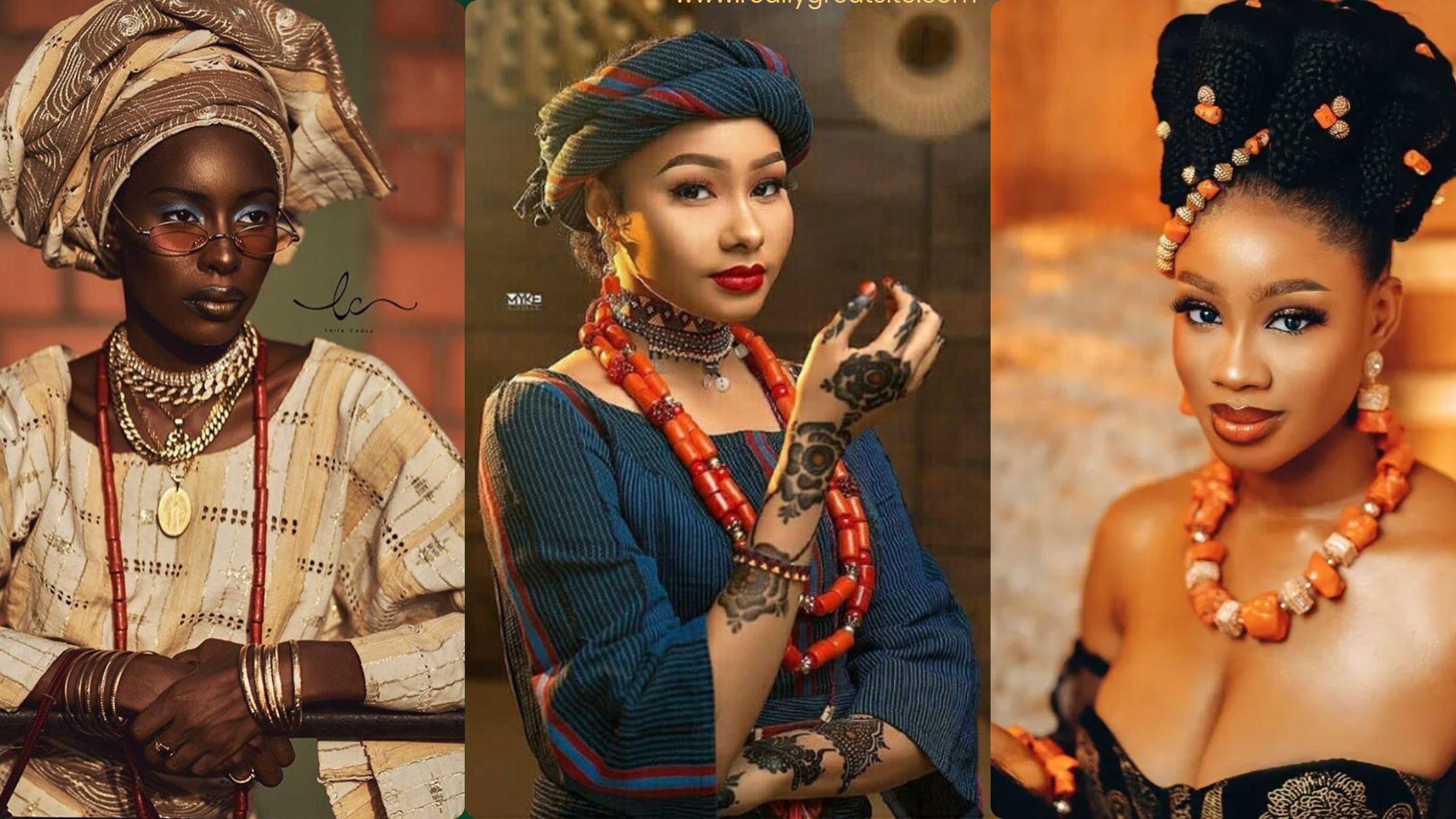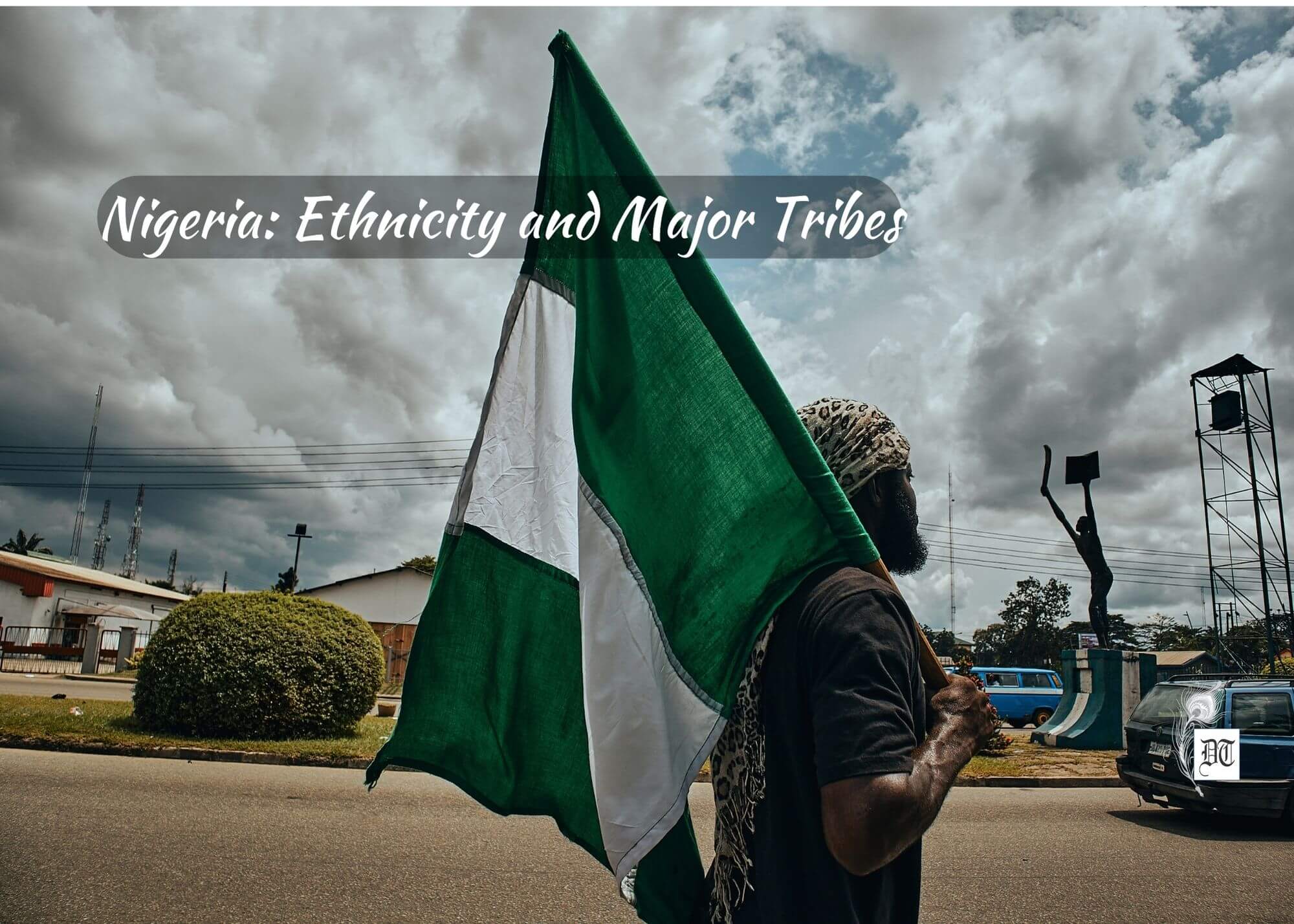Hey there, globetrotter! If you've ever been curious about the incredible cultural mosaic that is Nigeria, buckle up because we're diving deep into the fascinating world of the tribes of Nigeria. This West African powerhouse isn't just about oil and politics; it's a vibrant melting pot of ethnic groups, languages, and traditions that make it one of the most culturally diverse countries on the planet. Let's kick things off by exploring why understanding these tribes is so crucial in grasping Nigeria's rich heritage.
You might be wondering, "Why should I care about tribes of Nigeria?" Well, my friend, Nigeria is home to over 250 ethnic groups, each with its own unique customs, languages, and histories. These tribes aren't just names on a map; they're living, breathing cultures that have shaped not only Nigeria but also the global African diaspora. From the bustling streets of Lagos to the serene villages of the north, every corner of this country tells a different story.
And hey, if you're thinking this is going to be some dry, academic lecture, think again. We're keeping it real, breaking down the complexities of Nigerian tribal life into bite-sized chunks that'll leave you both informed and entertained. So grab a drink, get comfy, and let's dive into the heart of Nigeria's tribal landscape.
Understanding the Tribes of Nigeria: A Brief Overview
Alright, let's break it down. When we talk about the tribes of Nigeria, we're talking about a massive tapestry of cultures that have coexisted for centuries. The three largest ethnic groups—Hausa, Igbo, and Yoruba—make up about 68% of the population, but don't let that fool you. The remaining 32% is a kaleidoscope of smaller tribes, each with its own flavor. These groups have influenced everything from Nigerian politics to its music scene.
Who Are the Major Tribes of Nigeria?
Let's zoom in on the big three: Hausa, Igbo, and Yoruba. The Hausa people dominate the northern regions, known for their Islamic traditions and vibrant markets. The Igbo, on the other hand, are the entrepreneurial powerhouse of the east, famous for their business acumen and rich oral traditions. Lastly, the Yoruba, hailing from the southwest, are celebrated for their art, music, and spiritual practices. These tribes aren't just numbers; they're the backbone of Nigerian society.
Exploring the Smaller Tribes of Nigeria
But wait, there's more! Beyond the big three, Nigeria is home to a dazzling array of smaller tribes, each with its own unique identity. Groups like the Tiv, Fulani, Ijaw, Kanuri, and Edo add layers of complexity to the Nigerian cultural landscape. These tribes might not have the same global recognition as the major groups, but their contributions to Nigerian life are invaluable.
Why Are Smaller Tribes Important?
Smaller tribes often face challenges in maintaining their cultural heritage in a rapidly globalizing world. However, they play a crucial role in preserving Nigeria's diversity. For instance, the Ijaw people, known for their intricate masquerade traditions, keep alive practices that date back centuries. These traditions remind us of the importance of cultural preservation in an ever-changing world.
The Role of Language in Tribal Identity
Language is the lifeblood of any culture, and Nigeria's tribes are no exception. With over 500 languages spoken across the country, communication here is a colorful affair. Each tribe has its own language, often with multiple dialects, which serve as a vital link to their history and identity.
How Languages Shape Tribal Cultures
Think about it: language isn't just about words; it's about worldview. The way the Yoruba talk about spirituality or how the Igbo express entrepreneurship is deeply tied to their linguistic roots. This linguistic diversity enriches Nigerian culture, making it one of the most linguistically diverse countries in the world.
Religion and Spirituality in Nigerian Tribes
Religion plays a massive role in the lives of Nigerian tribes. While Islam and Christianity are the dominant religions, traditional African religions still hold sway in many communities. These spiritual practices are often intertwined with daily life, influencing everything from marriage ceremonies to farming practices.
Traditional African Religions: The Heartbeat of Tribal Life
Traditional beliefs, such as those practiced by the Yoruba through Ifá, offer a glimpse into the spiritual depth of Nigerian tribes. These practices aren't just rituals; they're a way of life that connects people to their ancestors and the natural world. Understanding these spiritual dimensions adds a layer of depth to appreciating Nigerian culture.
Challenges Facing Nigerian Tribes Today
Life isn't all sunshine and rainbows for Nigeria's tribes. Modern challenges like urbanization, globalization, and political instability threaten traditional ways of life. Many tribes struggle to maintain their cultural heritage in the face of these pressures, leading to a delicate balancing act between progress and preservation.
How Urbanization Affects Tribal Communities
As more Nigerians move to cities, rural tribal communities face the risk of losing their cultural identities. Young people, in particular, are drawn to urban centers for education and job opportunities, leaving behind the traditional ways of their ancestors. This migration can lead to a dilution of cultural practices and languages.
Celebrating Tribal Diversity: Festivals and Traditions
But it's not all doom and gloom! Nigeria's tribes are celebrated through vibrant festivals that showcase their rich cultural heritage. Events like the Calabar Carnival and the Argungu Fishing Festival attract visitors from around the world, offering a window into the unique traditions of these communities.
Top Festivals to Experience Nigerian Tribal Culture
- Calabar Carnival: A colorful celebration of culture with parades, music, and dance.
- Argungu Fishing Festival: A showcase of traditional fishing techniques and cultural performances.
- New Yam Festival: Celebrated by the Igbo people, this festival honors the harvest season with feasting and festivities.
Impact of Nigerian Tribes on Global Culture
Nigeria's tribes haven't just influenced life within the country's borders; they've made a splash on the global stage too. From Afrobeats music to Nollywood films, Nigerian culture is a force to be reckoned with. These cultural exports carry the essence of Nigeria's tribal traditions to audiences worldwide.
Nollywood: A Reflection of Tribal Diversity
Nollywood, Nigeria's booming film industry, often draws inspiration from tribal stories and traditions. Movies like "The Wedding Party" and "Lionheart" showcase the humor, drama, and richness of Nigerian life, bringing the country's diverse cultures to international audiences.
Table: Key Tribes of Nigeria
| Tribes | Region | Language | Population | Key Traditions |
|---|---|---|---|---|
| Hausa | Northern Nigeria | Hausa | Approx. 30 million | Islamic festivals, traditional markets |
| Igbo | Eastern Nigeria | Igbo | Approx. 30 million | New Yam Festival, entrepreneurial spirit |
| Yoruba | Southwestern Nigeria | Yoruba | Approx. 35 million | Ifá, art, music |
Looking to the Future: Preserving Tribal Heritage
As Nigeria continues to grow and develop, the challenge of preserving tribal heritage becomes more pressing. Efforts are being made to document languages, traditions, and histories, ensuring that these invaluable cultural assets aren't lost to time. Education, community initiatives, and government support are key to this preservation effort.
How You Can Help Preserve Nigerian Tribal Culture
Whether you're a traveler, a student, or just someone curious about the world, you can play a part in preserving Nigeria's tribal heritage. Supporting local artisans, attending cultural festivals, and learning about these traditions can make a big difference. Every little bit helps in keeping these cultures alive for future generations.
Conclusion: Why Tribes of Nigeria Matter
So there you have it, folks—a deep dive into the tribes of Nigeria. From the bustling markets of the Hausa to the entrepreneurial spirit of the Igbo and the artistic flair of the Yoruba, these tribes form the backbone of Nigerian culture. Understanding and appreciating this diversity is crucial not just for Nigerians but for anyone interested in the richness of human culture.
Now it's your turn! Share your thoughts in the comments below. Have you ever experienced Nigerian tribal culture firsthand? What fascinates you most about these incredible communities? And don't forget to check out our other articles for more insights into the wonders of Africa. Let's keep the conversation going!
Table of Contents
- Understanding the Tribes of Nigeria: A Brief Overview
- Who Are the Major Tribes of Nigeria?
- Exploring the Smaller Tribes of Nigeria
- The Role of Language in Tribal Identity
- Religion and Spirituality in Nigerian Tribes
- Challenges Facing Nigerian Tribes Today
- Celebrating Tribal Diversity: Festivals and Traditions
- Impact of Nigerian Tribes on Global Culture
- Looking to the Future: Preserving Tribal Heritage
- Conclusion: Why Tribes of Nigeria Matter



Detail Author:
- Name : Macey Padberg
- Username : lockman.rebecca
- Email : qconsidine@yahoo.com
- Birthdate : 1991-10-29
- Address : 32937 Russel Landing North Newell, ME 77590-3492
- Phone : (407) 462-6252
- Company : Greenfelder Group
- Job : Statement Clerk
- Bio : Rerum nihil aperiam et nam. Mollitia et doloribus et dolores. Velit qui minima praesentium maxime nihil.
Socials
instagram:
- url : https://instagram.com/margie.schmidt
- username : margie.schmidt
- bio : Officiis et culpa pariatur suscipit id. Molestiae magnam ea voluptatem est voluptas molestiae enim.
- followers : 4546
- following : 2622
tiktok:
- url : https://tiktok.com/@schmidtm
- username : schmidtm
- bio : Esse earum soluta molestias minus. Eos consequuntur est aliquam eos dolores.
- followers : 5582
- following : 1928